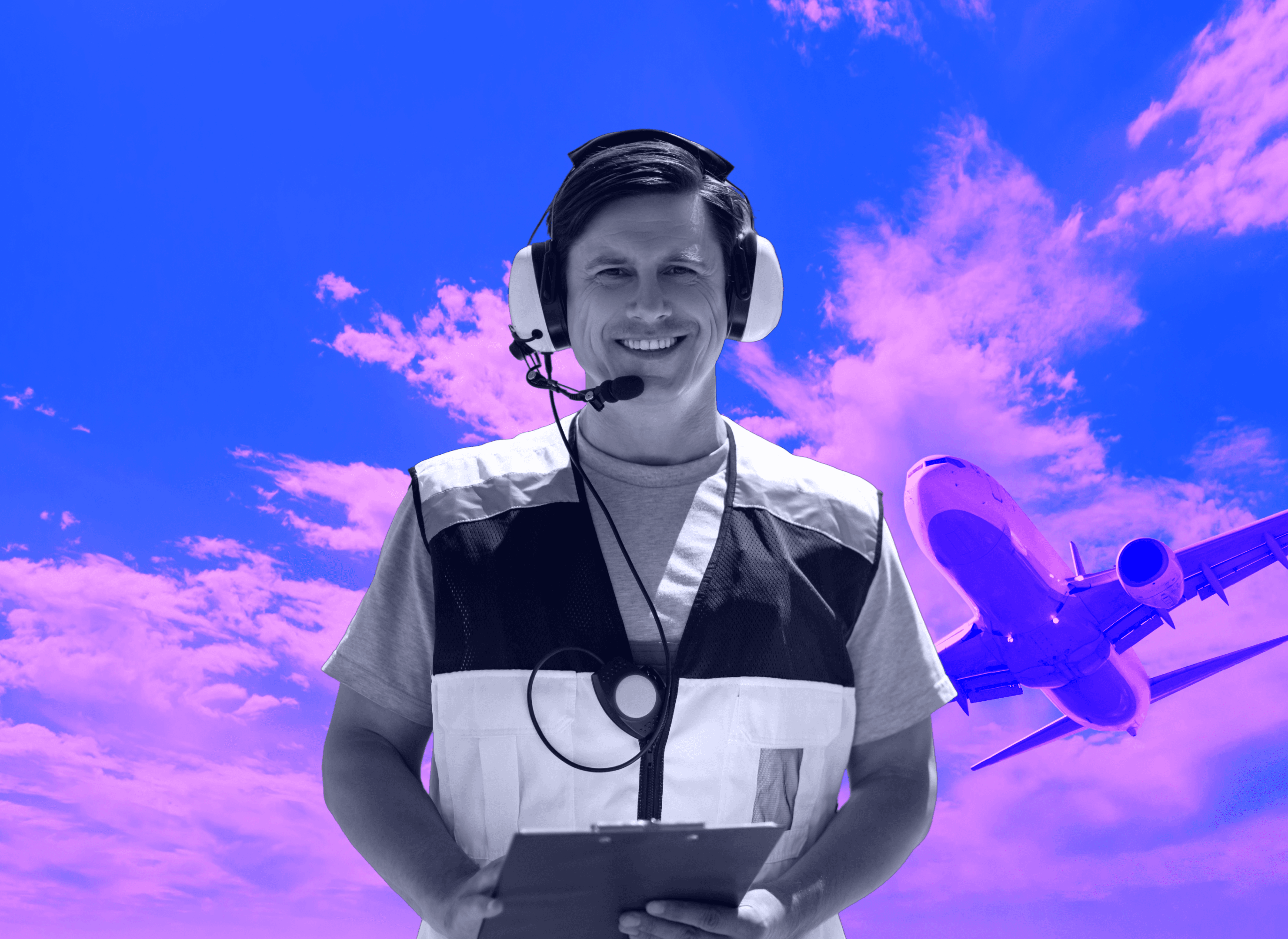Meet the frontline workers behind some of America’s most people-first cultures
Bringing Company Culture to New Heights: Closing the Frontline Gap in Aviation


Barbara Booras
Head of Customer Community & CX Events at Workvivo
Delighting your passengers is what keeps them choosing your airline again and again. But if your frontline workers aren’t engaged, inspired, and informed, you risk delivering poor experiences that degrade customer trust – and your brand’s reputation.
For our recent Frontline Gap report, we surveyed over 7,500 frontline workers across industries, including over 1,200 in aviation, to understand the fracture between frontline and desk-based workers commonly known as the “Frontline Gap.” Our research found that in aviation, frontline workers are feeling particularly unrecognized and underappreciated, which could lead to disruptions or even turnover as employees switch off, swap the frontline for office jobs, or leave your company for a competitor.
Want to learn more about how the frontline gap affects frontline aviation workers? Download the full Aviation Frontline Gap report for more insights and practical advice, and read on to discover some key takeaways.
1. Frontline aviation workers feel the recognition gap more than most
Many frontline workers feel that their office-based colleagues receive more recognition than they do, but this “recognition gap” between frontline and desk workers is especially pronounced in aviation.
Aviation has some of the starkest results when it comes to how they feel about the frequency and amount of recognition they receive:
- 📉 Only 30% of frontline aviation workers say they “frequently” feel recognized for their work, the lowest across industries.
- 📈 59% feel they have a bigger impact than their office colleagues but aren’t recognized for it, the highest across industries.
- 📈 49% say their company doesn’t care about them as a person, the highest across industries.
Most telling of all? Lack of recognition is the number-one factor compromising frontline aviation workers’ sense of belonging at work, with a massive 48% of respondents citing it as the biggest issue, compared to only 33% across all industries.
2. Almost half of frontline aviation workers have feedback to share but no way to do so
Some 49% of frontline aviation workers say they have feedback they want to give to leadership but no good way to share it. Again, this is the highest result across industries, a full 11 percentage points above the global average of 38%.
Frontline aviation workers interact directly with passengers, often at emotionally intense, high-stakes moments, like when they’re travelling for important events, just missed a flight, or their luggage has been lost.
These workers have on-the-ground insights about customer needs and operational processes that could be used to make major optimizations. But without clear feedback channels, businesses miss out on valuable opportunities to capture this input and enhance the customer experience – making frontline workers feel alienated and undervalued in the process.
3. Aviation workers may be more tempted to leave the frontline for a desk job
Providing growth opportunities was cited as the top way to make frontline aviation workers feel more valued aside from compensation, but over half (57%) of our survey respondents feel they have fewer of these opportunities than their office-based colleagues.
In fact, career growth is so important to frontline aviation workers that 55% say they would leave their current company for one that offers the same pay but better opportunities.
Does that mean they want to leave the frontline? Not necessarily. Aviation is the most likely industry to say they’d “definitely” want a desk job if offered one (17% compared to the global average of 12%). But overall, many want to stay in the field, with 41% of frontline aviation employees saying they wouldn’t take it.
Of course, this likely varies by role. Frontline airline employees include everything from pilots and cabin crew to maintenance technicians and customer support. To understand how each cohort feels and proactively prevent attrition, you need to run regular employee pulse surveys and drill into the results by role and location. This lets you spot early warning signs of disengagement and quickly intervene.
Bring your business to new heights by engaging frontline aviation workers
From ensuring passenger safety to turning frustrated customers into happy frequent fliers, frontline aviation workers are essential to keeping your airline running smoothly and successfully. But when frontline employee engagement starts to decline, so do passenger experiences, leading to delays, disruptions, and damaged reputation.
Ready to close the frontline gap and give your frontline aviation workers the recognition they deserve? Download the full Aviation Frontline Gap report to learn more.
